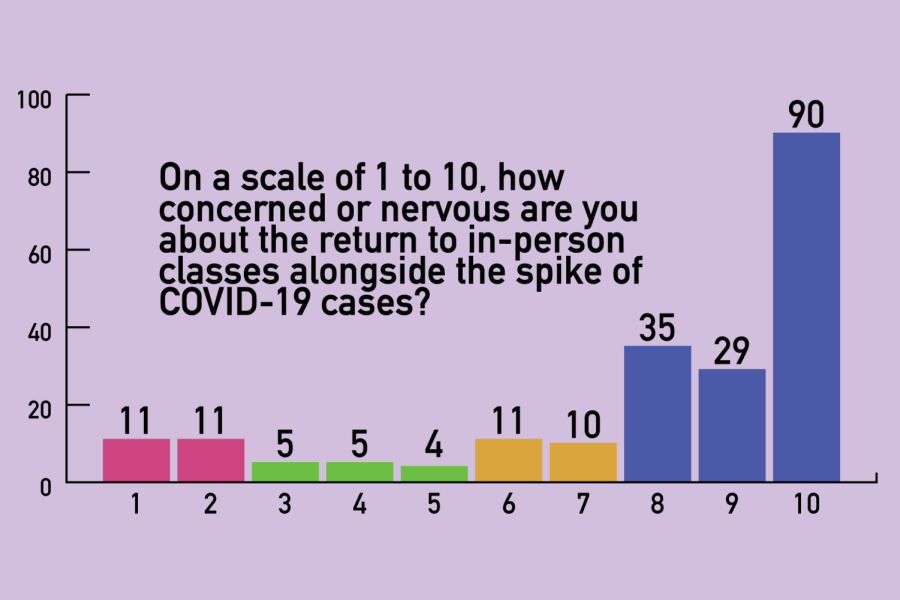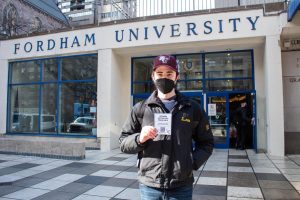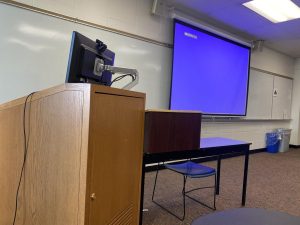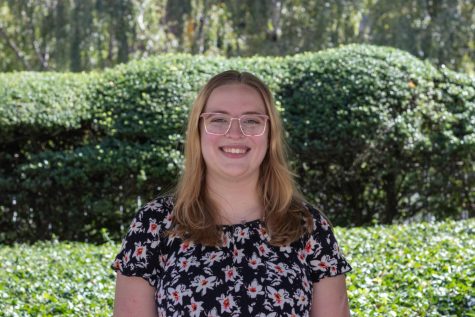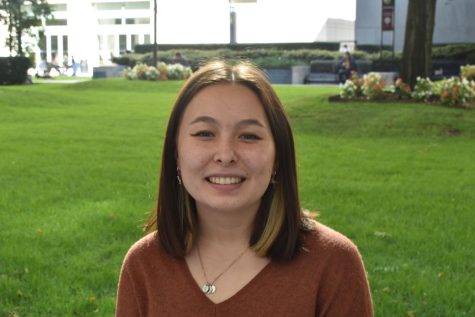Fordham Community At Odds Over Fully In-Person Spring Semester
Out of 211 respondents, 43.1% want Fordham to implement a hybrid option for classes
Most respondents said that they were concerned or nervous or very concerned or nervous about returning to classes this semester with COVID cases rising.
February 2, 2022
Amid the spike in COVID-19 cases alongside the omicron variant, Fordham announced on Jan. 10 that the university would continue to operate with fully in-person classes for the spring semester. The decision was met with criticism from both students and faculty due to the rising number of cases.
When students left for winter break, Fordham’s COVID-19 cases were at a record high, with 120 cases at Fordham Lincoln Center and 239 cases at Fordham Rose Hill. As of Feb. 1, there have been 12 positive tests in the past seven days at Lincoln Center and 35 at Rose Hill.
As colleges across the country approached the beginning of their spring semesters, many announced that they would hold the first few weeks of class virtually. Schools such as Harvard, Stanford and Georgetown universities began their semesters online, and other schools have chosen to either delay their start time or allow professors to choose their modality of instruction for the first few weeks.
Bob Howe, assistant vice president for communications, said that many of the universities that opted to begin their classes online did so because they were scheduled to begin their semesters a week or two before Fordham and that these schools made their decisions with less information about the spread of the omicron variant.
Universities like Barnard College and Columbia University in New York, as well as Rutgers University in New Jersey, held their first two weeks of classes remotely and were scheduled to begin the semester on Jan. 18, the same day that Fordham’s spring semester began. Howe also cited the fact that the omicron variant has already peaked in New York City, as it is ahead of New York state and the rest of the United States.
New Safety Measures
Fordham announced new safety measures to be implemented for the spring semester in an email sent on Jan. 3. Two of the changes from the fall semester included requiring all on-campus students, faculty and staff to receive their booster dose and submit a PCR test by Jan. 23.
The Observer conducted an anonymous survey on Jan. 16 about student opinions on returning in person and received 211 responses by Jan. 27. In the survey, many students expressed their concerns regarding Fordham’s booster exemptions.
When Fordham announced that students, faculty and staff would be required to be fully vaccinated to return to campus for the fall 2021 semester, they also stated that people may be accommodated if they had documented proof of a medical or religious exemption.
The only new exemptions that exist for the booster requirement are for those who had extreme reactions to the first or second dose of their primary vaccination series or for those for whom it would be harmful to their health to receive the booster.
According to Keith Eldredge, assistant vice president and dean of students, the only new exemptions that exist for the booster requirement are for those who had extreme reactions to the first or second dose of their primary vaccination series or for those for whom it would be harmful to their health to receive the booster.
One of the reasons for extension is eligibility. Individuals become eligible for the booster five months after they received their second dose. When one becomes eligible, Eldredge said they are given a two-week window to receive their booster dose.
“Sometimes people will have had a reaction and don’t want to go to class the next day; they want to do it on a Tuesday since they have a light class load on Wednesday or whatever it may be,” he said. “So we will give folks two weeks after that.”
Aside from the extension for those not yet eligible, Fordham will also allow an extension for those who have recently had COVID-19. The most common extension after a COVID-19 infection is one month, according to Eldredge.
One student said Fordham should do weekly testing and “not once a month, as is Fordham’s precedent.”
“The CDC (Centers for Disease Control and Prevention) guideline says, generally, once you are out of isolation and symptom free, folks could get it, but if they send us a doctor’s note that says, ‘Hey, I want my patient to wait a month because of this circumstance,’ then they are getting that exception,” Eldredge said. “It seems like we will be back to 99 percent with the booster within a few weeks.”
During the 2020-21 academic year, the university implemented monthly surveillance testing for all in-person students, faculty and staff. Many of the respondents to the survey expressed that they would like to see surveillance testing return this semester.
Students had differing opinions on how often the surveillance testing should be conducted, with most wanting it every one to two weeks. One student said Fordham should do weekly testing and “not once a month, as is Fordham’s precedent.”
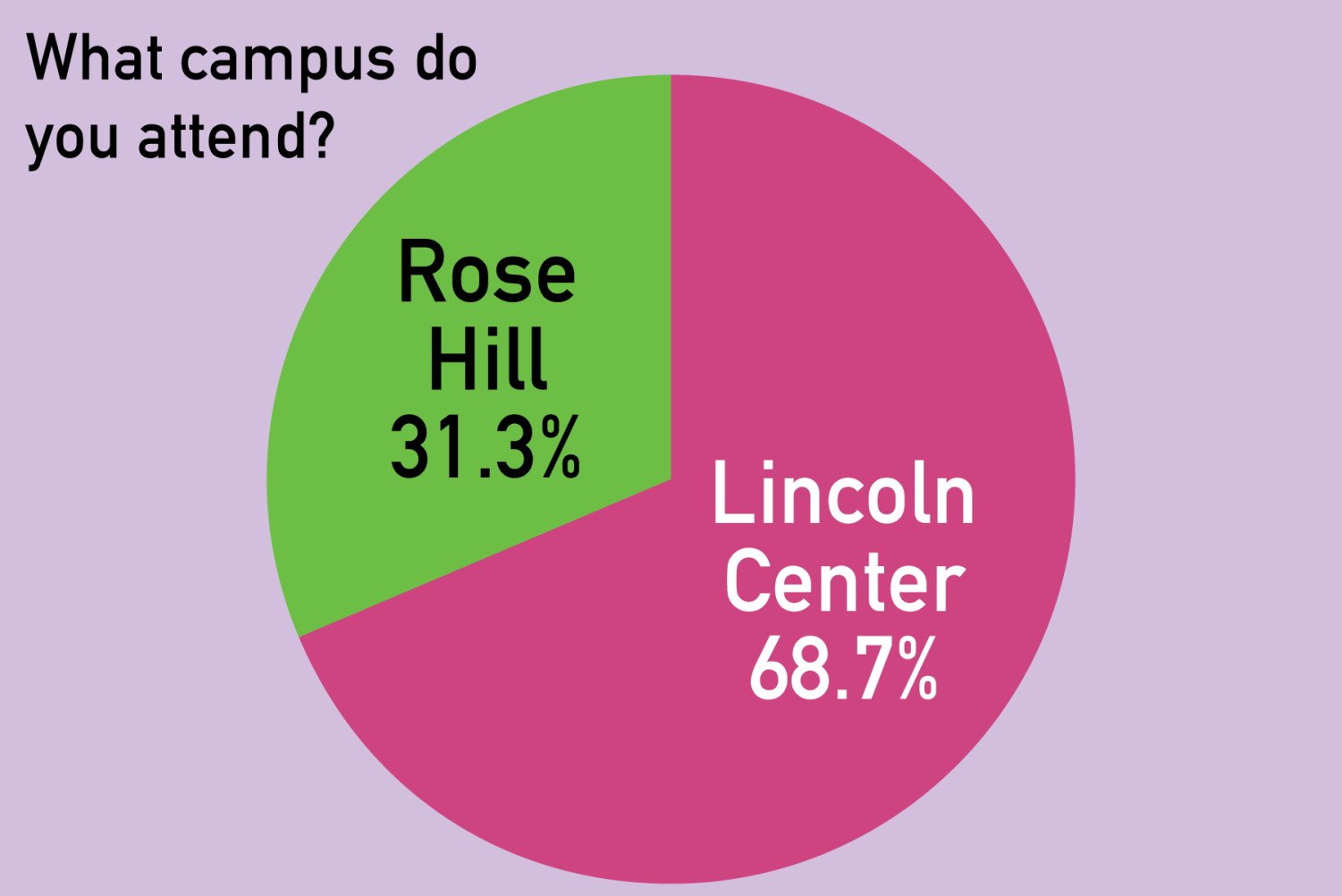
On Jan. 27, Marco Valera, vice president for administration and COVID-19 coordinator, announced that Fordham will be implementing surveillance testing again this semester. All on-campus students, faculty and staff will be required to test again before Feb. 13.
Eldredge explained that one of the considerations with surveillance testing was how frequent it can be. Many students in the survey suggested weekly testing but, according to Eldredge, that would not be possible due to the testing shortages.
“We are trying to balance between having the capacity to do the testing while also having it be reasonably effective,” he said. “Once a semester testing isn’t really sufficient. Once a week testing probably isn’t possible, especially now with testing results taking longer to come back from off campus (testing).”
In addition to testing and boosters, Fordham dining places will offer additional to-go options, and events will not be permitted to have food or drink until further notice to limit opportunities for unmasking.
Fitness centers — with the exception of the Ram Fitness Center at Rose Hill, which reopened on Jan. 28 — are also closed. Eldredge noted closing the gyms was the “most controversial decision” that the administration made.
New policies for the Ram Fitness Center at Rose Hill include occupancy limits, social distancing requirements and indoor masking. The McMahon Gym at Lincoln Center will remain closed until further notice.
Masks continue to be required on campus, with free KN95s made available to all students, faculty and staff by Public Safety. Many students in the survey wanted individuals on campus to be required to wear N95s or KN95s, as they offer more protection than other masks, according to the CDC. Other students worried about students not wearing their masks correctly and the mask mandate not being enforced adequately.
“On the one hand, it is not solely the responsibility of the students to police each other, but I do think that peer-to-peer pressure from students can have an impact on that in a positive way,” Eldredge said. “And we certainly rely on students and other faculty, staff and employees to address that in the best way that they can and then tap into other resources.”
Only 11% of respondents supported a fully in-person semester.
Student Response
After the decision to return to in-person classes was announced, students advocated for a hybrid learning option. They listed the need for a virtual modality for those who test positive for COVID-19 and are not allowed to attend classes, as well as for those who are immunocompromised or have high-risk family members.
In the survey from The Observer, many other students also advocated for a hybrid option to be implemented. Of the 211 respondents, 43.1% stated that there should be a hybrid option.
“As a commuter student who lives with immunocompromised individuals, I feel that going back to campus at this time is incredibly dangerous,” a respondent said. “From my experience last semester on campus, I know that safety precautions are not being taken seriously by students or staff members.”
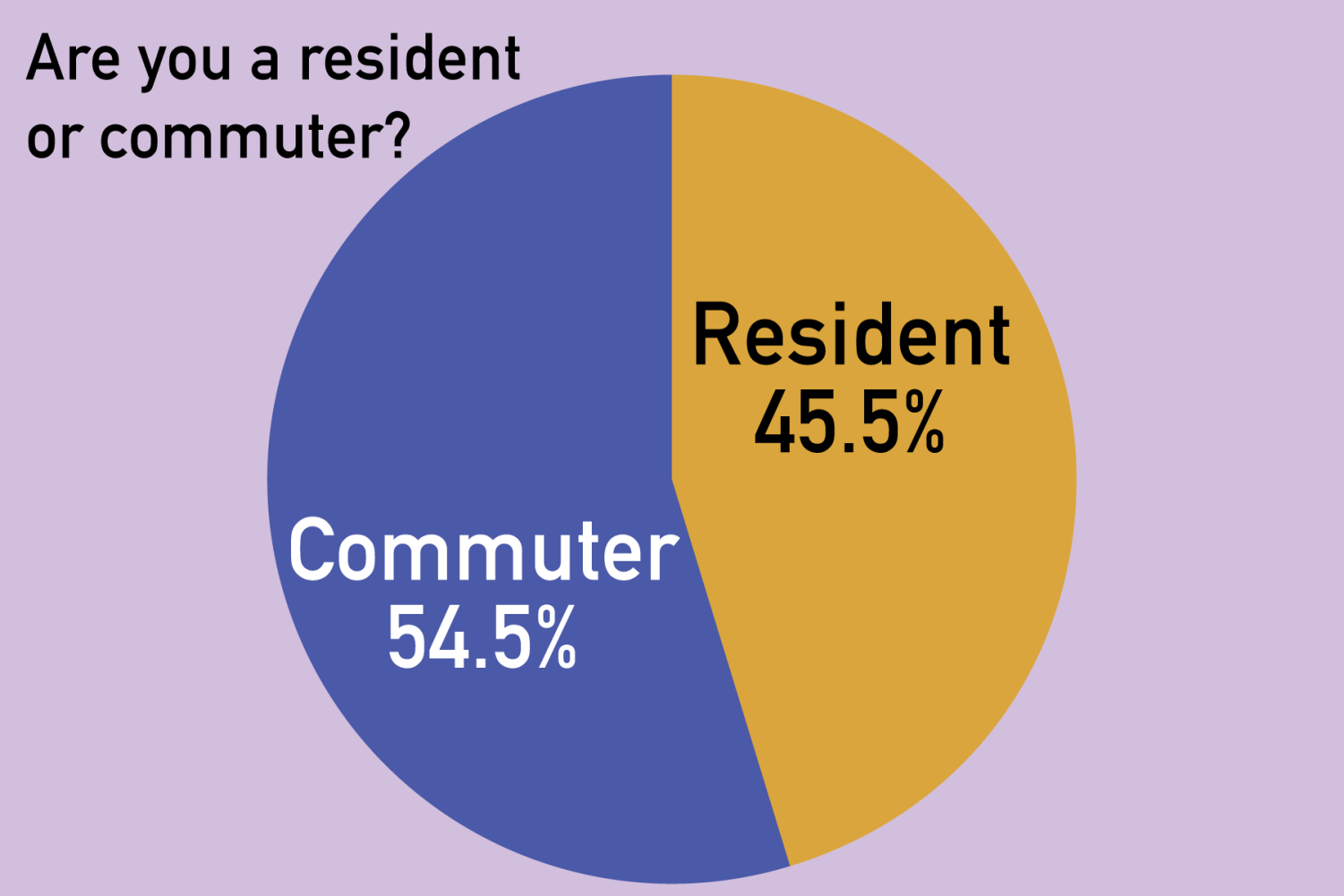
Other respondents, 39.8%, wished Fordham started virtually and then made a decision later.
“This will only make cases go up,” another student in the survey said. Other students echoed this sentiment, with one stating, “right now Fordham is risking lives.”
On the two extremes of the options, 4.3% of respondents said that the semester should be entirely online, whereas 11.8% said that the semester should continue completely in person.
A student who voted for the semester being online said they still have lasting effects from a COVID-19 infection and would “most likely be unable to attend classes unless they allow a virtual option.”
Other students voted for having a semester in person due to Fordham’s high tuition.
“To have the semester online is a slap in the face to the families and students who pay to attend Fordham. As students we deserve the highest level of education possible, and online learning simply does not achieve this,” a respondent said. “With the entirety of the student body vaccinated, boosted, and masked, being in the buildings and classrooms serves no serious health risk.”
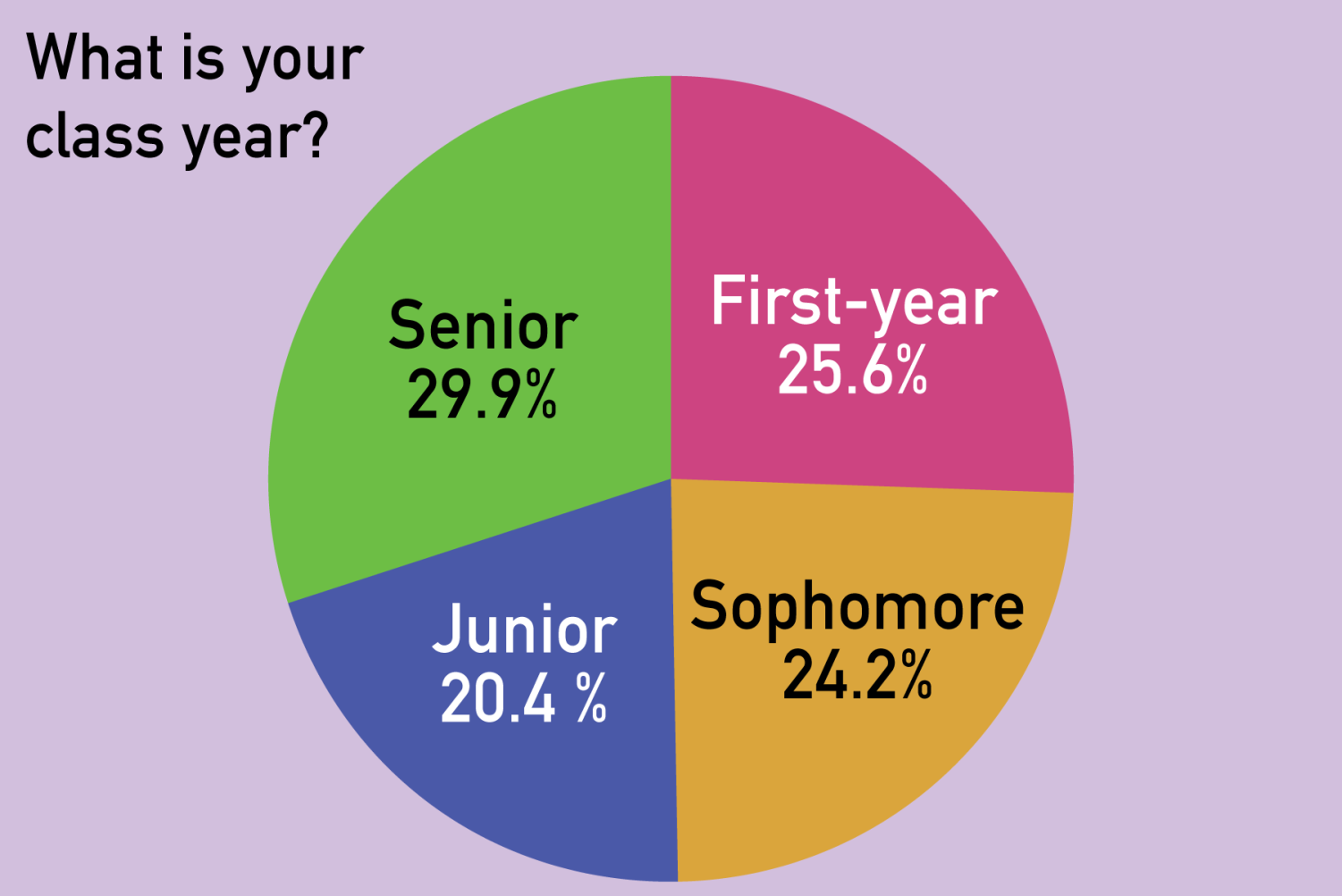
In the email sent on Jan. 10 announcing the return to in-person classes, President of Fordham University Rev. Joseph M. McShane, S.J., explained that the decision came from guidance suggesting that the omicron variant is “far less likely to cause severe disease, especially within a fully vaccinated community.” Additionally, McShane stated the desire to provide the best education is what led in-person classes to resume.
Faculty Response
After the decision to return in person was announced, the Faculty Senate held a special meeting on Friday, Jan. 14, to discuss the return to in-person classes for the spring semester. Senate Faculty President John Drummond explained that one of the major concerns for faculty is the ventilation in older buildings, as well as the use of public transportation for the commute.
At the meeting, they passed a resolution to allow professors to choose how they teach for the first two weeks of the spring semester, according to Drummond. The resolution was rejected by the Fordham administration.
“The vast majority of cases have arisen among students, and a majority of those have been traced back to unmasked socializing off campus.” Dennis Jacobs, provost and senior vice president for academic affairs
In response to the resolution, Dennis Jacobs, provost and senior vice president for academic affairs, sent an email to all faculty explaining the decision. In the email, Jacobs stated that the decision to remain completely in person, in comparison to previous semesters that were virtual or hybrid, came from the ability to have the student body both vaccinated and boosted, as well as the omicron variant’s “reduced virulence.”
“The vast majority of cases have arisen among students, and a majority of those have been traced back to unmasked socializing off campus,” Jacobs said. “A rather smaller number is attributed to contact among roommates and suitemates.”
As February arrives, health officials remain hopeful that the omicron variant will slow down. However, although the experience with the omicron variant in South Africa and Australia ended in a sharp decline, health officials are encouraging New Yorkers to continue to exercise caution to avoid an increase in cases.

